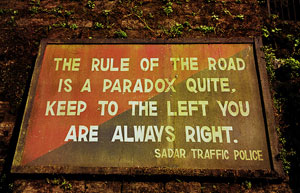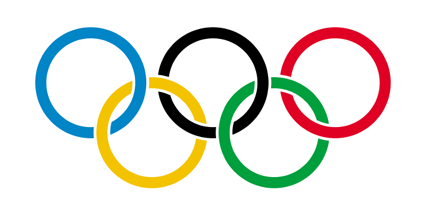Introduction

Source: Paradoxes, James Guppy, Flickr
Paradox is a type of figurative language that A Handbook to Literature defines as “a statement that while seemingly contradictory or absurd may actually be well-founded or true.” You will find paradox in both the poetry and the prose you read. In identifying it, you should look for apparently contradictory terms or incompatible elements. Look at the examples below from Writing Essays About Literature and try to find two seemingly contradictory terms in each one. Use your notes to write your responses. When you are finished, check your understanding below.
1. I must be cruel to be kind.
2. You must lose your life in order to gain it.
Sample Responses:
- You should have found the terms “cruel” and “kind.”
- You should have found the terms “lose” and “gain.”
These statements seem absurd at first glance. However, if you pause to think a little more about them (which is precisely what the author wants you to do), you may find truth in them, especially if you interpret the statements figuratively rather than literally. Consider the first statement, which is from the play Hamlet by William Shakespeare. Try to think of a circumstance in which you must be cruel to be kind. Could the author’s purpose be to suggest that the person who wants to be kind in the end might need to be cruel in the meantime? What about a father or mother who chooses to ground a child severely for getting poor grades? To the child, harsh punishment may seem like a cruelty at the time, but isn’t it ultimately kind of the parent to instill a sense of responsibility even though it means facing a difficult conflict?
In the second example, the pairing of “lose” and “gain” implies that you must surrender some aspect of your existence or being in order to acquire or achieve something else desirable. For example, think about Olympic gold medal winner Michael Phelps. When he was in high school, he swam competitively and practiced many hours, thereby missing out on a typical high school social life. He lost his teenage years, in a sense, in order to gain or win the gold!

Source: Olympic Rings, Pierre de Coubertin, Wikimedia Commons